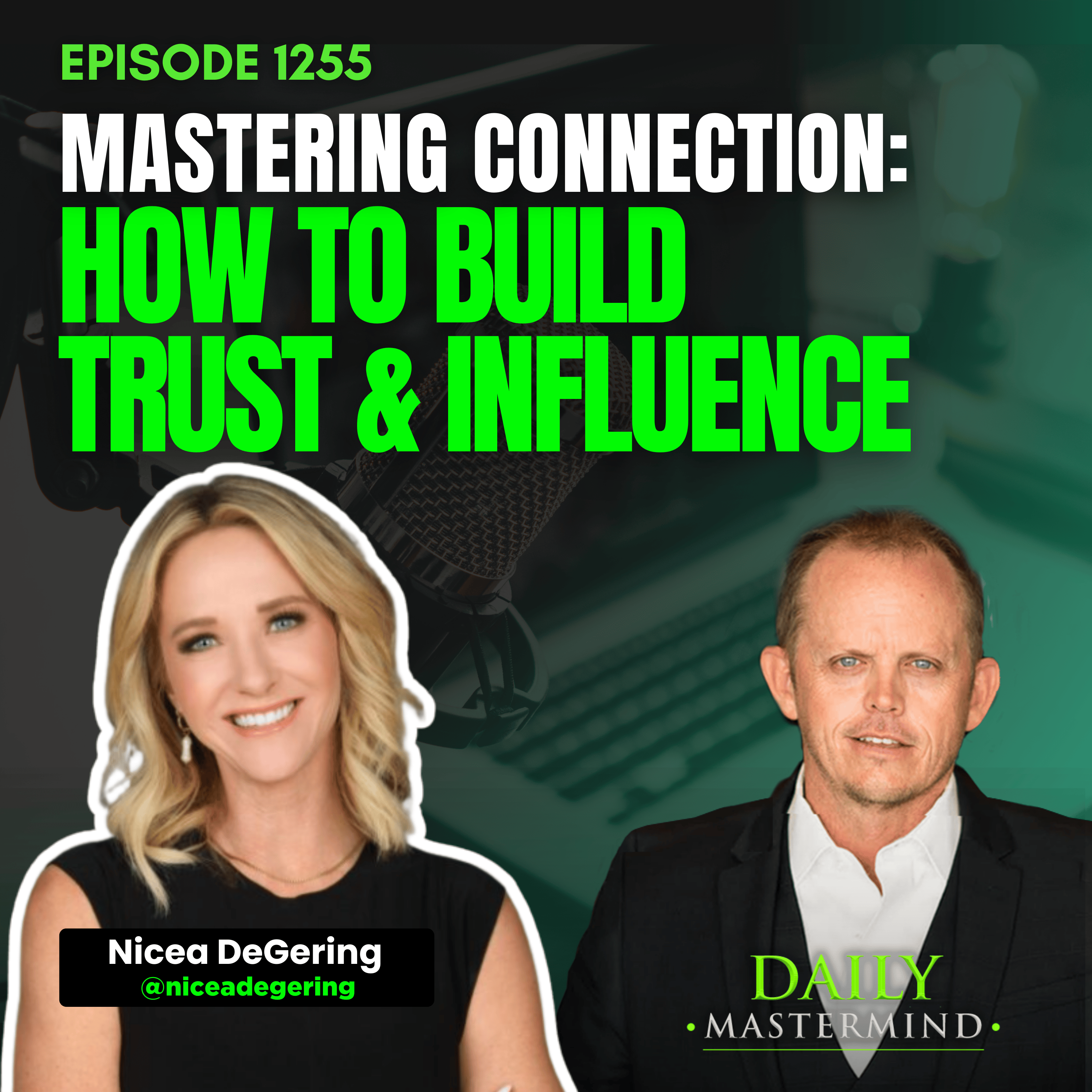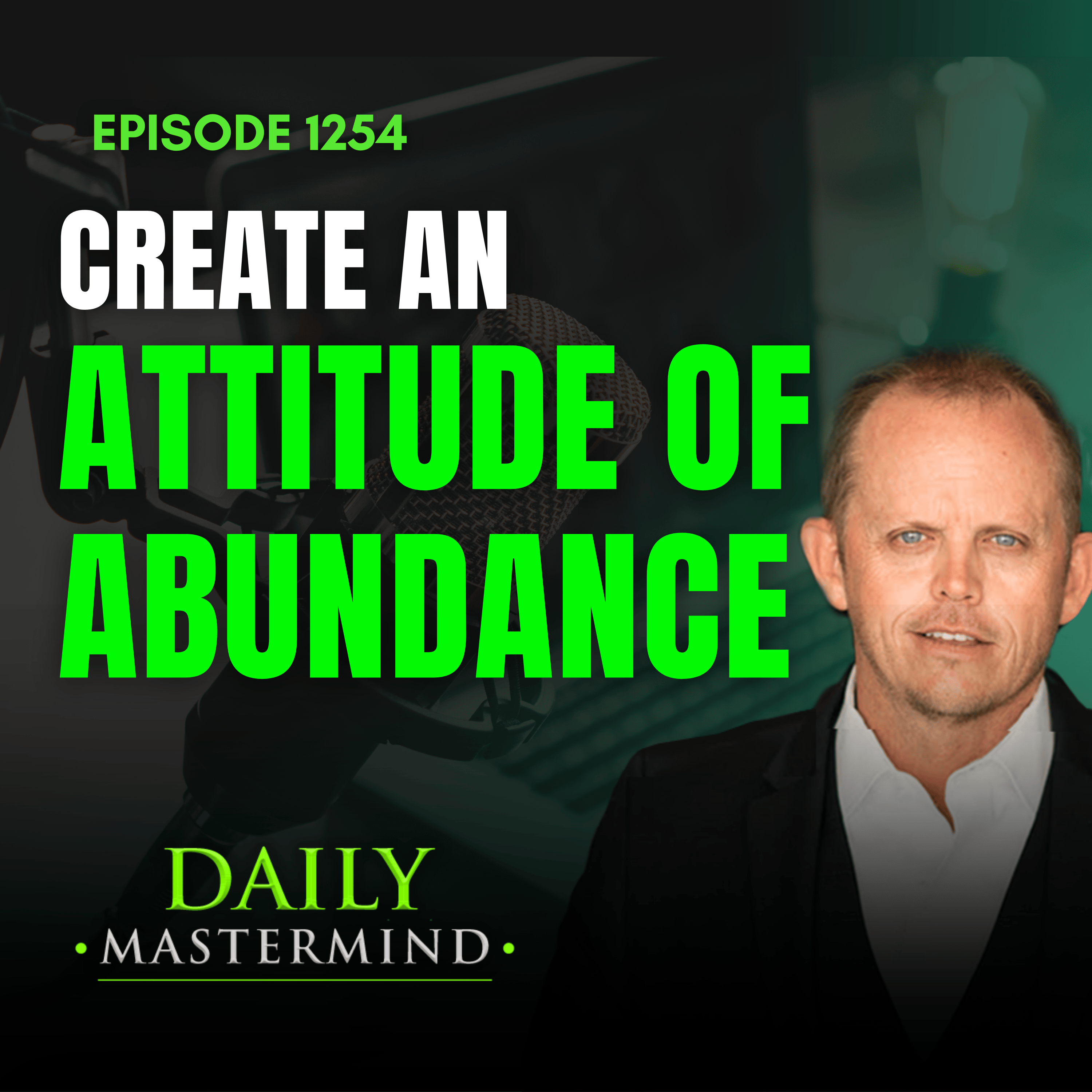
8 Keys to Be an Effective Executive from Peter F. Drucker
Are you interested in learning how to enhance your leadership skills and become an effective executive? This discussion by George Wright ii on The Daily Mastermind podcast covers essential insights from Peter Drucker's book "The Effective Executive" and explores eight key practices that can guide you in becoming more effective in both your personal and professional life. Would you like to dive into these strategies to boost your productivity and influence?
8 Keys to Be an Effective Executive from Peter F. Drucker
Hey guys, how are you? Welcome back to The Daily Mastermind. My name's George Wright ii with your daily dose of inspiration, motivation, and education. How's your week going so far? I always find about halfway during the week, I like to take a step back and just. Make sure that I'm on task. It's about this time of the week where you're either going off the rails on some project or random thing that you weren't expecting, or you do a you call an audible and you refocus on the things that are the most important in your business, in your life, in everything that you're doing.
So this is that checkup, this is that wake up call. And so I wanted to be able to talk with you about a couple of different things today. But one of the topics I really want to talk with you about is.
The Importance of Leadership and Effectiveness
Leadership and the idea of being an effective executive. Now, listen, you may be an owner, you may be a CEO, you may be an entrepreneur, you may have a side hustle.
You might even just be dealing with, relationships and things in your household. But the bottom line is this, in order to be a leader, in order to be someone that has influence, and I believe this has to happen, if you're trying to create your own life, if you're trying to create your best life.
Then you have to, to a certain degree, become a leader. And more importantly, you have to become effective. You truly have to become effective in your life. And I wanna focus today just on this concept. I wanna plant a couple of seeds for you because I think there's so many different ways that people can measure effectiveness.
But when it comes down to being effective. Or even more specifically effective in business.
Peter Drucker's Insights on Effectiveness
I like to think about a lot of things I've learned from Peter Drucker. So Peter Drucker, I don't know if any of you have read the book, the Effective Executive, which is a guide to getting things done. But Peter Drucker is an author that's had, gosh, I think he's had 30, 35 books.
And his I, his ideas and things he's had, have been all over the world. Businesses have implemented them. A lot of big corporations, a lot of very successful people, but he's a writer, a philosopher, a consultant, but he's written a book called The Effective Executive and many others as well.
And in his book, he talks about what it takes to become an effective executive. So someone that's really getting things done, and I'm gonna read you a little something outta the first paragraph here and then I wanna talk to you about it. Drucker says, an effective executive does not need to be a leader in the sense that the term is now most commonly used.
And the reason I'm really highlighting this is because so many people think about being. An effective executive as someone that needs to be a manager or then up into a leader position. But really at the end of the day, if you're trying to create your life and you're trying to truly get results, you have to be an effective executive, not just a leader.
He talks about how, Harry Truman, for example, did not have an ounce of charisma. For example, he was among the most effective chief executives in US history. Even though he had no charisma, and some of the best business and nonprofit CEOs that Drucker's ever worked with over 65 years of consulting were not the typical leader.
They were all over the map. Effective executives, effective leaders. Don't always necessarily have a certain personality type or attitude or strength or weakness.
Key Practices for Effective Executives
In fact, he talks about in his book that there are eight key factors, key practices that an effective leader or an effective executive will implement.
There are eight key things and I wanna run through those with you today because I want you to be asking yourself these, and I think these are a great refinement. For the middle of the week and the first two practices are what give you the knowledge. To really get things done. And so these are giving you the knowledge.
The first one is they ask what needs to be done. It sounds simple, but we're so busy with our task lists and priorities and things people want. I want you to truly step back and just ask what really needs to be done right now. And then the second thing that they ask themselves is what is right for the enterprise?
What is right for the enterprise? Because see. They don't ask that. The most effective leaders and executives don't ask themselves, what's right for the stakeholders or the employees or the profit centers or the business relationships or customers. They ask what's right for the business because if the business thrives and flourishes.
Then all those people are gonna benefit. But sometimes when you just ask yourself what's right for the, the shareholders or the owners or the employees, it's not always what's right for the business to thrive. So ask yourself those two questions. What needs to be done right now and what's right for the business.
And then there's four other kind of questions or practices that will help you convert that knowledge into. A true action plan, a true effective, results driven plan.
Developing and Implementing Action Plans
And so the first thing is, effective executives develop a plan. They develop action plans and an action plan. A lot of times we just try to accomplish tasks without having something specific, measurable, something that you can really, truly execute on.
They also ask themselves, and they take responsibility for any decision they make. How many of you have worked with leaders or individuals that always try to point the finger? The simplest, quickest, fastest way to get results is just to accept responsibility for your decisions based on the plan that you're trying to implement.
Fostering Responsibility and Communication
And effective executives also take responsibility for communicating. The worst possible thing you could do is to create a plan. And be responsible, but not have every level of your organization, every level of the people in your sphere of influence. Understanding what the plan is and communicating.
Communication is going to be the lifeblood of getting results and executing a plan effectively. And then finally, in order to convert that knowledge into a real solid executable plan, they're focused on opportunities.
Focus on Opportunities, Not Problems
Rather than problems. See, I think a lot of times when we're trying to execute our plan, we're trying to problem solve.
We're not trying to create opportunities. And opportunities are what's gonna lead you to results, not. Problems, and there's so many reasons for this we're not gonna cover today. Your scarcity mindset versus, an abundance mindset or thinking out of the box, which will help you to innovate into the next level.
You wanna constantly be ahead of the curve. You need to be focused on opportunities. So once you've figured out what needs to be done and what's right for the company. And you've developed an action plan and you take responsibility for decisions and for communicating, and you're focused on opportunities and solutions.
The final part, the last two parts, ensure that the whole organization or everyone around you. Also feel responsible and accountable.
Running Productive Meetings
And the way you do that is you run productive meetings. I can't emphasize enough how much of a difference it makes when you run a productive meeting. Meaning you're not just doing a meeting for meeting's sake.
You have clear objectives. You have clear intentions. People come and they're intentional with their time. They're not multitasking, and you're to the point and you run a productive meeting. And then finally. Effective leaders, according to Drucker they always think and process their information as a we rather than an I.
In other words, when you can truly become a team and you can think and act in terms of we, rather than I, you're gonna find a lot more consistent implementation throughout the organization. So these are the, these are the eight. Components that have been proven to really create an effective executive.
And I believe it's a great tweak on this idea of leadership because it doesn't always take a leader to be effective. Those are other types of, characteristics that you can develop. But at the end of the day, the only thing that really matters in your life right now is results. The only thing that matters in your business is effective action and results.
And so I encourage you to ask yourself these questions to continuously and periodically ask yourself what's most important? Do I have a plan? Am I implementing and communicating that plan and taking responsibility? Am I finding ways to run effective meetings so that I'm driving the organization or the opportunity that I have?
And if you'll do that. I think you'll become much, much more effective. And I hope that's something that'll give you some inspiration to do things and re-audit what your day-to-day is so that you can become super effective.
Conclusion and Call to Action
Remember, the whole point of this mastermind is to help you to create the life that you're meant to live your best life.
The one where you grow and develop and learn and experience more than you ever could think is possible. And the only way you could do that is with results. So that's my message for today. I hope you have an amazing day. Do me a favor and share this episode. Just kick it out, share, on your social media to a friend, text it.
But tag me in your post if you do at The Daily Mastermind so I can see what you're up to and what you're doing. I look forward to hearing from you. I look forward to helping you to drive your results in your life. Once again, my name's George Wright ii. This has been a daily Mastermind. Have a great day.

.png)
.png)

